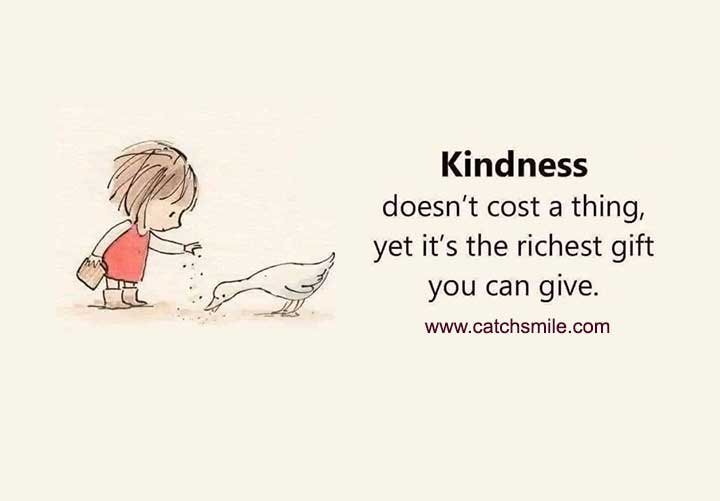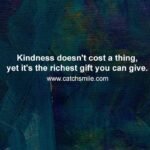Kindness doesn’t cost a thing, yet it’s the richest gift you can give.
This quote emphasizes the value of kindness and suggests that kindness is a priceless and abundant gift that doesn’t come with a material cost. The underlying message is that acts of kindness are valuable not because of their monetary worth, but because of the positive impact they can have on individuals and society as a whole.
Here’s a breakdown of the key points in the quote:
1. Kindness as a Non-Material Gift: The quote suggests that kindness is not something that requires financial resources. Unlike material gifts that often come with a price tag, kindness is portrayed as a form of generosity and compassion that can be freely given.
2. Richness of Kindness: The quote implies that kindness is a form of wealth. While material possessions and wealth are often associated with richness, the quote suggests that kindness holds a special and unique kind of wealth. It’s a wealth of positive emotions, goodwill, and positive connections between people.
3. Universal Accessibility: Since kindness is portrayed as something that doesn’t cost anything, the quote implies that everyone has the capacity to be kind. It doesn’t matter one’s financial status; anyone can choose to be kind and make a positive difference in the lives of others.
4. Impact of Kindness: By describing kindness as the richest gift, the quote underscores the profound impact that acts of kindness can have. Kindness has the power to uplift spirits, strengthen relationships, and create a positive ripple effect in the world.
In essence, this quote encourages people to recognize the inherent value of kindness, emphasizing that it’s a precious gift that can be given freely. It serves as a reminder that in a world where material possessions often take center stage, the simple act of being kind can bring immeasurable richness to our lives and the lives of those around us.









Pingback: Don't Judge. Nobody has it easy, Everybody has problems. - Catch Smile
Pingback: Nothing is more important than your presence in my life. - Catch Smile